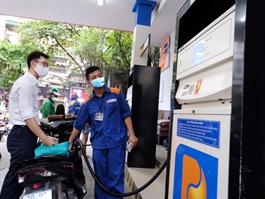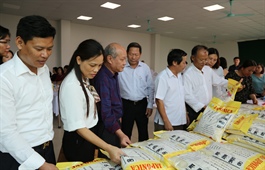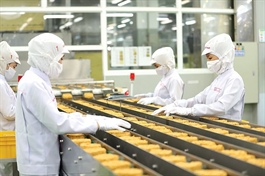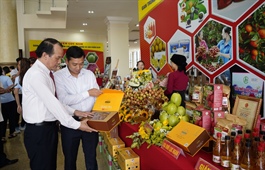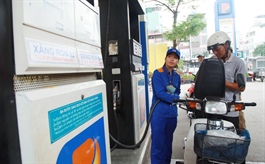Car sales up in air with end of fee cut
Car sales up in air with end of fee cut
The expiration of a registration fee cut for locally-assembled and manufactured cars, on top of parts shortages, caused a plunge in the sale of cars in June.

Last month, just over 17,800 passenger cars were sold in June, while 6,800 commercial vehicles and over 510 special-use vehicles found buyers, signifying a decrease of 49, 14, and 24 per cent compared to the figures of May, respectively. The figures were released by the Vietnam Automobile Manufacturers’ Association (VAMA) in mid-July.
VAMA members sold a mere 11,000 locally-assembled vehicles, plummeting 57 per cent on-month, while sales of imported completely built-up cars saw an on-month decrease of 23 per cent.
Hyundai Vietnam reported selling nearly 4,280 cars in June this year, representing a drop of 34 per cent compared to the figures from May, according to a July 13 report from TC Group Vietnam.
Honda Vietnam faces a similar situation. In June, the company sold almost 147,700 cars and motorcycles, down 5 per cent on-month and 1.4 per cent on-year. In the automobile segment, the company sold just over 1,700 units, which accounted for a decrease of 46.5 per cent on-month.
“There have been shortages in parts, chips, and semiconductors ever since the pandemic broke out,” Ninh Huu Chan, general secretary of VAMA’s Managing Board, told VIR. “The heavy reliance on overseas spare part manufacturers, geopolitical crises, and more have resulted in these shortages.”
Ukraine had been producing at least half of the world’s neon gas, which is critical for manufacturing semiconductor chips, although some accounts put the figure over 70 per cent and perhaps as much as 90 per cent before the Russian conflict began earlier this year.
According to experts, each car has on average about 1,400 chips in hundreds of semiconductor parts and the number can amount to 3,000 in hi-tech vehicles such as electric or hybrid cars. Meanwhile, there are now almost no domestic enterprises capable of making a fully functional semiconductor chip.
Statistics by the General Department of Customs showed that in the first half of this year, Vietnam spent $39.62 billion on imported computers, electronic parts, and components – a rise of $9 billion or 29.3 per cent on-year, thus making up the largest group in import turnover in the period, accounting for 23.36 per cent of the country’s total import value.
Last November, Deputy Prime Minister Le Minh Khai signed Decree No.103/2021/ND-CP stipulating the registration fee for cars, trailers, or semi-trailers pulled by cars and similar vehicles manufactured and assembled domestically. The fee cut was applicable from December 2021 to the end of May this year in an attempt to help the market recover.
Expectations have been largely met for the period. Between January and May this year, VAMA members sold nearly 176,700 cars, up 39 per cent on-year. The sales of passenger cars and special-use vehicles soared by 57 per cent at over 140,000 units and 21 per cent at 2,900 units, respectively. The sales of locally-assembled cars during the 5-month period climbed by 47 per cent on-year to 105,000.
“A plunge in car sales may happen in the next one or two months, so car manufacturers and distributors are likely to issue promotion and discount programmes to recover purchasing power,” Chan added.





